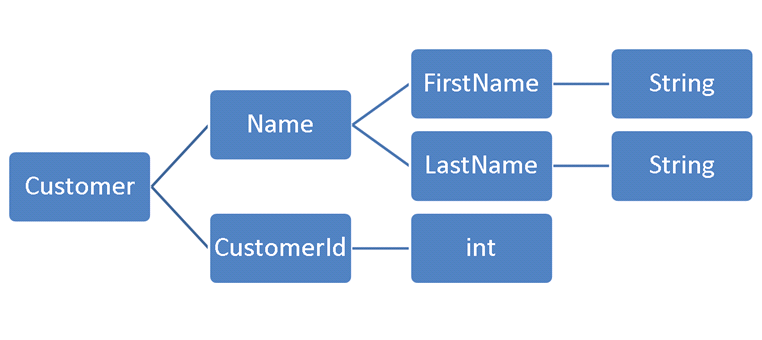Object Calisthenics
9 steps to better OO code
Agenda
Learn how to make our code more:
- readable
- reusable
- testable
- maintainable
Raise you hand if you know one of the following:
- DRY
- KISS
- SOLID
- YAGNI
- Zen of Python
Calisthenics
Cal • is • then • ics - /ˌkaləsˈTHeniks/
"Calisthenics are exercises consisting of a variety of gross motor movements; often rhythmical and generally without equipment or apparatus."
Wikipedia
Object Calisthenics

Written for Java
Why bother?
Code is read more than it's written
Author unknown
You need to write code that minimizes the time it would take someone else to understand it - even if that someone else is you
Art of Readable Code by Dustin Boswell, Trevor Foucher
Rule #1
Only one level of indentation per method
class Board(object):
def __init__(self, data):
# Level 0
self.buf = ""
for i in range(10):
# Level 1
for j in range(10):
# Level 2
self.buf += data[i][j]
class Board(object):
def __init__(self, data):
self.buf = ""
self.collect_rows(data)
def collect_rows(self, data):
for i in range(10):
self.collect_row(data[i])
def collect_row(self, row):
for j in range(10):
self.buf += row[j]
products = self.get_products_by_user(...)
if products is None:
products = self.get_products_by_media(...)
if products is None:
products = self.get_products_by_domain(...)
if products is None:
products = self.get_any_products(...):
if products is None:
raise Exception('Access denied')
else:
...
else:
...
else:
...
else:
...
Chain of command
Benefits
- Single responsibility
- Better naming
- Shorter methods
- Reusable methods
Rule #2
Do not use else keyword
if options.get_categories() is None:
...
elif len(options.get_categories()) == 1:
...
elif SPECIAL_CATEGORY in options.get_categories():
...
elif options.get_categories() and options.get_query():
...
elif options.get_content_type():
...def login (self, request):
if request.user.is_authenticated():
return redirect("homepage")
else:
messages.add_message(request,
messages.INFO,
'Bad credentials')
return redirect("login")
def login (self, request):
if request.user.is_authenticated():
return redirect("homepage")
messages.add_message(request,
messages.INFO,
'Bad credentials')
return redirect("login")
def function(param):
if param is not None:
value = param
else:
value = "default"
return valuedef function(param):
value = "default"
if param is not None:
value = param
return value
Extract code
Default value
Polymorphism
Strategy pattern
State pattern
Examples
https://github.com/gennad/Design-Patterns-in-Python

https://www.quora.com/Is-it-true-that-a-good-programmer-uses-fewer-if-conditions-than-an-amateur
Benefits
- Avoids code duplication
- Lower complexity
- Readability
Rule #3
Wrap primitive types if it has behaviour
Value Object in DDD
class Validator(object):
def check_date(self, year, month, day):
pass
# 10th of December or 12th of October?
validator = Validator()
validator.check_date(2016, 10, 12)
class Validator(object):
def check_date(self, year: Year, month: Month, day: Day) -> bool:
pass
# Function call leaves no doubt.
validator.check_date(Year(2016), Month(10), Day(12))Benefits
- Encapsulation
- Type hinting
- Attracts similar behaviour
Rule #4
Only one dot per line
OK: Fluent interface
class Poem(object):
def __init__(self, content):
self.content = content
def indent(self, spaces):
self.content = " " * spaces + self.content
return self
def suffix(self, content):
self.content = self.content + " - " + content
return self
Poem("Road Not Travelled").indent(4)\
.suffix("Robert Frost")\
.contentNot OK: getter chain
class CartService(object):
def get_token(self):
token = self.get_service('auth')\
.auth_user('user', 'password')\
.get_result()\
.get_token()
return token
# 1. What if None is returned instead of object?
# 2. How about exceptions handling?
class Field(object):
def __init__(self):
self.current = Piece()
class Piece(object):
def __init__(self):
self.representation = " "
class Board(object):
def board_representation(self, board):
buf = ''
for field in board:
buf += field.current.representation
return buf
class Field(object):
def __init__(self):
self.current = Piece()
def add_to(self, buffer):
return self.current.add_to(buffer)
class Piece(object):
def __init__(self):
self.representation = " "
def add_to(self, buffer):
return buffer + self.representation
class Board(object):
def board_representation(self, board):
buf = ''
for field in board:
buf = field.add_to(buf)
return buf
Benefits
- Encapsulation
- Demeter's law
- Open/Closed Principle
Rule #5
Do not abbreviate
Why abbreviate?
Too many responsibilities
Name too long?
Split & extract
Duplicated code?
Refactor!
class Order(object):
def ship_order(self):
pass
order = Order()
order.ship_order()
// vs
class Order(object):
def ship(self):
pass
order = Order()
order.ship()acc = 0
// accumulator? accuracy?
pos = 100
// position? point of sale? positive?
auth = None
// authentication? authorization? both?Benefits
- Clear intentions
- Indicate underlying problems
Rule #6
Keep your classes small
What is small class?
- 15-20 lines per method
- 50 lines per class
- 10 classes per module
Benefits
- Single Responsibility
- Smaller modules
Rule #7
No more than 2 instance variable per class
Class should handle single variable state
In some cases it might be two variables

class CartService(object):
def __init__(self):
self.logger = Logger()
self.cart = CartCollection()
self.translationService = TranslationService()
self.auth_service = AuthService()
self.user_service = UserService()
Benefits
- High cohesion
- Encapsulation
- Fewer dependencies
Rule #8
First class collections
collections module
Benefits
- Single Responsibility
Rule #9
Do not use setters/getters
Accessors are fine
Don't make decisions outside of class
Let class do it's job
Tell, don't ask
class Game(object):
def __init__(self):
self.score = 0
def set_score(self, score):
self.score = score
def get_score(self):
return self.score
# Usage
ENEMY_DESTROYED_SCORE = 10
game = Game()
game.set_score(game.get_score() + ENEMY_DESTROYED_SCORE)class Game(object):
def __init__(self):
self.score = 0
def add_score(self, score):
self.score += score
# Usage
ENEMY_DESTROYED_SCORE = 10
game = Game()
game.add_score(ENEMY_DESTROYED_SCORE)Benefits
- Open/Closed Principle
Catch 'em all!
Catch 'em all!
- Only one level of indentation per method,
- Do not use else keyword,
- Wrap primitive types if it has behavior,
- Only one dot per line,
- Don’t abbreviate,
- Keep your entities small,
- No more than two instance variable per class,
- First Class Collections,
- Do not use accessors
Catch 'em all!
- Only one level of indentation per method,
- Do not use else keyword,
- Wrap primitive types if it has behavior,
- Only one dot per line,
- Don’t abbreviate,
- Keep your entities small,
- No more than two instance variable per class,
- First Class Collections,
- Do not use accessors
- ???
- PROFIT!
Homework
Create new project up to 1000 lines long
Apply presented rules as strictly as possible
Draw your own conculsions
Customize these rules
Final thoughts
These are not best practices
These are just guidelines
Use with caution!
Questions?
Links
https://www.slideshare.net/PaweLewtak/object-calisthenics-pycon-sk-2017
https://www.cs.helsinki.fi/u/luontola/tdd-2009/ext/ObjectCalisthenics.pdf
https://pragprog.com/book/twa/thoughtworks-anthology
https://github.com/gennad/Design-Patterns-in-Python
https://en.wikipedia.org/wiki/Law_of_Demeter
https://www.quora.com/Is-it-true-that-a-good-programmer-uses-fewer-if-conditions-than-an-amateur
Thank you!
Object Calisthenics.py SK
By Paweł Lewtak
Object Calisthenics.py SK
- 555



